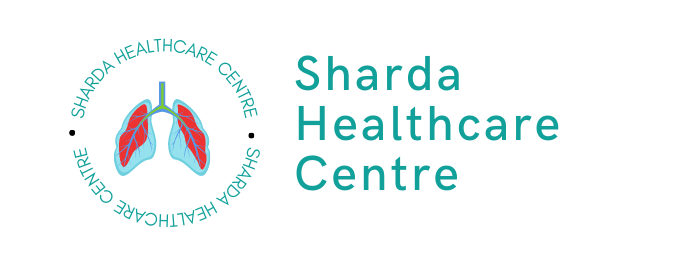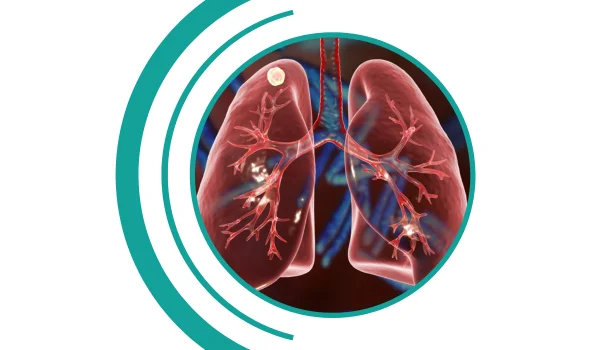
Interstitial Lung Disease Treatment in Jaipur (ILD)
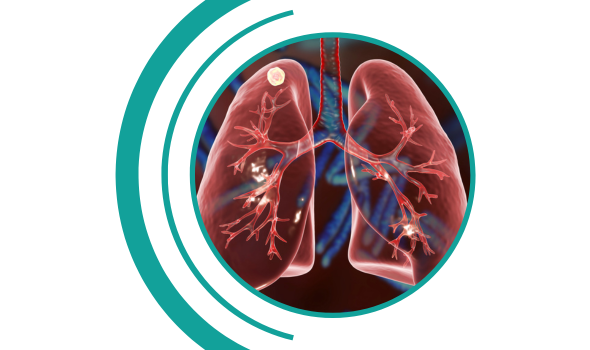
In Jaipur, the treatment for Interstitial Lung Disease (ILD) is comprehensive and aims to improve patients’ quality of life. Medical facilities in Jaipur provide specialized care and advanced treatments for ILD patients. The management of ILD involves a multidisciplinary approach, including pulmonologists, rheumatologists, and thoracic surgeons. Treatment options may include medication to reduce inflammation, improve lung function, and manage symptoms. In some cases, oxygen therapy and pulmonary rehabilitation are prescribed to enhance respiratory function and physical endurance. Additionally, lung transplantation may be considered for eligible patients. The medical professionals in Jaipur employ the latest advancements in ILD treatment to offer personalized care and improve outcomes for patients.
Types of Interstitial Lung Disease (ILD)
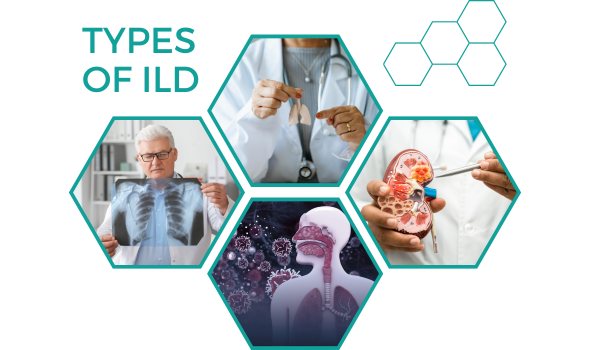
Interstitial Lung Disease (ILD) encompasses a range of lung disorders characterized by inflammation and scarring of the interstitial tissue. Common types include Idiopathic Pulmonary Fibrosis (IPF), which progresses over time, and Sarcoidosis, marked by granuloma formation. Connective Tissue Disease-Associated ILD occurs in individuals with autoimmune conditions like rheumatoid arthritis or lupus. Hypersensitivity Pneumonitis is caused by an immune response to inhaled allergens. Non-specific Interstitial Pneumonia (NSIP) shows varying patterns of inflammation and fibrosis. Other types include Cryptogenic Organizing Pneumonia (COP), Acute Interstitial Pneumonia (AIP), Lymphangioleiomyomatosis (LAM), Desquamative Interstitial Pneumonia (DIP), and Pulmonary Langerhans Cell Histiocytosis (PLCH). Each type has distinct clinical features, prognosis, and treatment approaches.
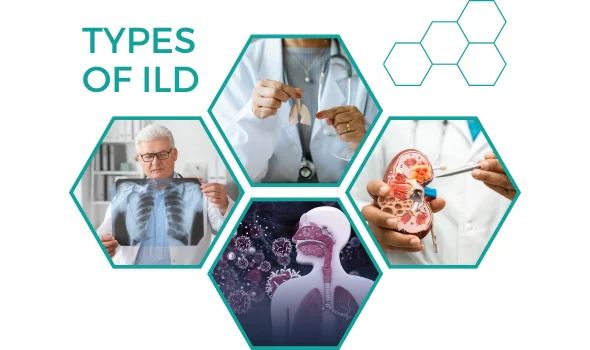
Symptoms
Symptoms of Interstitial Lung Disease (ILD) can vary depending on the specific type and stage of the disease. However, some common symptoms include:
- Breathlessness or shortness of breath, especially during physical activity.
- Dry cough that persists and worsens over time.
- Fatigue or extreme tiredness.
- Gradual, unintended weight loss.
- Chest discomfort or pain.
- Clubbing of the fingers (enlargement and rounding of fingertips).
- Dry, crackling sound in the lungs (known as Velcro crackles) heard through a stethoscope.
- Rapid, shallow breathing.
- Reduced exercise tolerance.
- In advanced stages, cyanosis (bluish discoloration of the lips or skin) may occur.
It is important to note that these symptoms can be similar to those of other respiratory conditions, so a proper diagnosis by a medical professional is crucial.
Causes
The causes of Interstitial Lung Disease (ILD) are diverse and can vary depending on the specific type of ILD. Some common causes and risk factors include:
- Idiopathic: In many cases, the exact cause of ILD is unknown, leading to idiopathic forms such as Idiopathic Pulmonary Fibrosis (IPF).
- Environmental Factors: Exposure to certain substances like asbestos fibers, silica dust, coal dust, or metal dust can contribute to the development of ILD.
- Autoimmune Diseases: ILD can occur in individuals with autoimmune conditions like rheumatoid arthritis, systemic sclerosis, or lupus.
- Infections: Certain infections such as viral pneumonia, fungal infections, or tuberculosis can cause ILD.
- Drug-induced: Some medications, such as certain chemotherapy drugs or certain antibiotics, can lead to ILD as a side effect.
- Genetic Factors: In rare cases, ILD can be caused by genetic mutations or inherited conditions, such as Hermansky-Pudlak syndrome or familial pulmonary fibrosis.
It’s important to consult with a healthcare professional for a thorough evaluation and diagnosis of the underlying cause of ILD in each individual case.
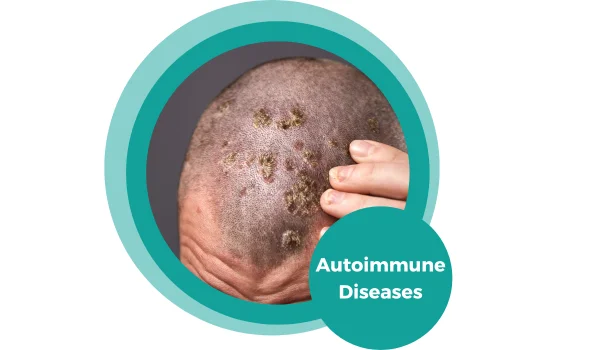
1. Autoimmune Diseases
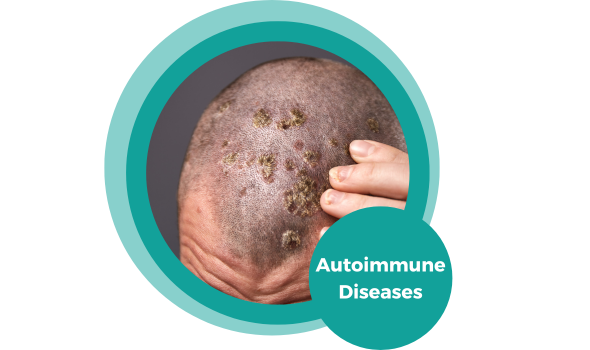
Autoimmune diseases are conditions in which the body’s immune system mistakenly attacks healthy cells and tissues. Examples include rheumatoid arthritis, lupus, multiple sclerosis, and type 1 diabetes. These diseases can affect various organs and systems, leading to chronic inflammation and potential damage if left untreated.
2. Exposure to toxic substances:

Exposure to toxic substances refers to coming into contact with harmful chemicals or materials that can have detrimental effects on health. Examples include asbestos fibers, heavy metals, pesticides, industrial chemicals, and air pollutants. Prolonged or excessive exposure to such substances can lead to various health issues, including respiratory problems, organ damage, and increased risk of certain diseases.

Interstitial Lung Disease (ILD) Treatment:
Treatment for Interstitial Lung Disease (ILD) aims to manage symptoms, slow disease progression, and improve quality of life. The approach depends on the specific type and severity of ILD. Medications, such as corticosteroids and immunosuppressants, may be prescribed to reduce inflammation and fibrosis. Oxygen therapy can alleviate breathlessness and improve oxygen levels. Pulmonary rehabilitation programs help optimize lung function and physical endurance. In some cases, lung transplantation may be considered for advanced ILD. It’s essential to address underlying causes, such as treating autoimmune disorders or avoiding exposure to toxic substances. A multidisciplinary team of healthcare professionals collaborates to provide personalized treatment plans for ILD patients.
Quick Contact
Address
70, 46, Patel Marg, opposite Rastogi Gas Agency, Mansarovar Sector 7, Agarwal Farm, Sector 9, Mansarovar, Jaipur, Rajasthan 302020
deveshkanoongo0701@gmail.com
Phone No.
9024605799, 9414774975
